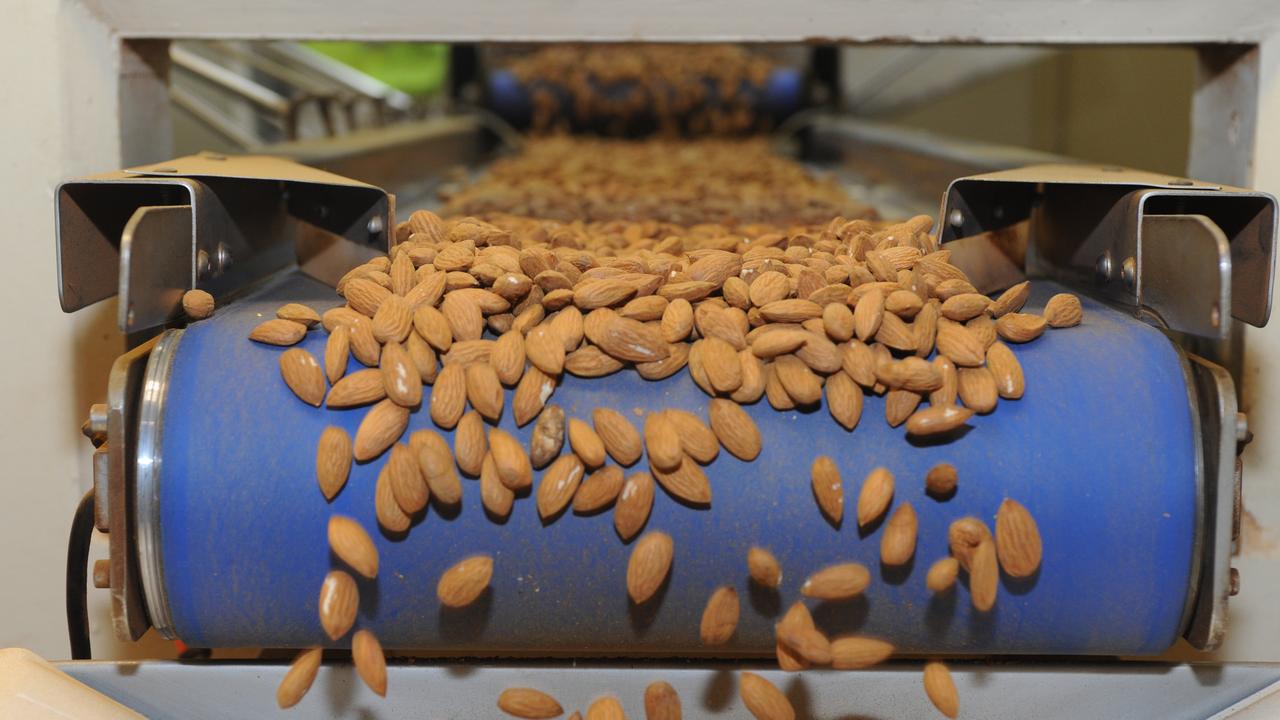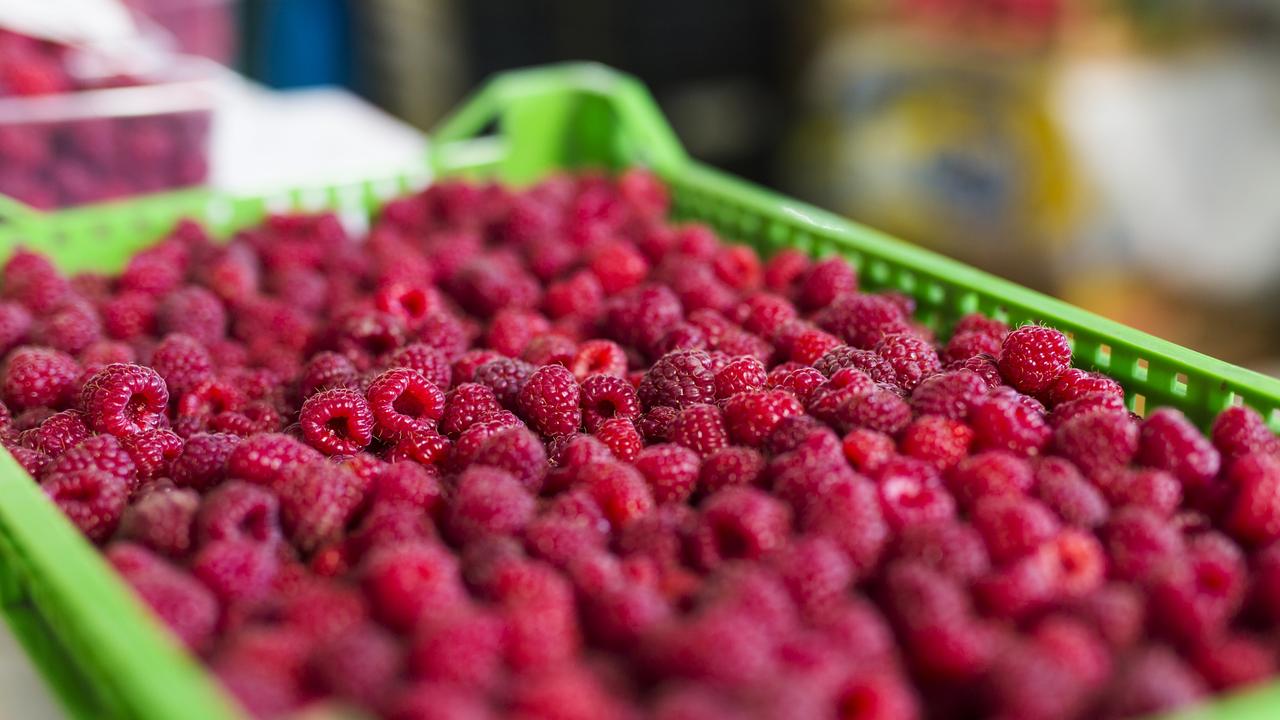Allegations of intimidation amid a crackdown on illegal workers
Border Force officials have reportedly upped their presence across Victorian farms — with some growers alleging use of increasingly aggressive and intimidating tactics.
FARMERS say they are in the firing line of a ramped-up Australian Border Force crackdown on illegal farm workers.
As farmers stare down the barrel of yet another season of labour shortages, the law-enforcement agency has reportedly upped its presence across Victorian farms this month.
Some growers allege officials are using increasingly aggressive and intimidating tactics.
The crackdown comes as Victoria’s labour-hire licensing laws have kicked in, and after a Victorian Farmers Federation survey released this month found 71 per cent of growers in the Sunraysia region suspect they have undocumented workers on their farms.
One Victorian grower – a spokesman for one of the country’s biggest horticultural industries but who wanted to remain anonymous for fear of government reprisal — said ABF personnel had “threatened and bullied” growers in Sunraysia accused of using illegal labour hire providers.
“We have no issue with getting rid of illegal contractors as an industry but the onus is coming back on the grower. We’re being harassed, our wives have been left crying, some are still shaking,” he said.
“We just want to grow our crops and feed our families. We’re fed up with being treated like criminals.
“The industry is trying to get it right but it’s all coming back to the farmer.”
An ABF spokesman said ABF “strongly refutes” any claims of threatening tactics being used.
The spokesman did not answer questions about the number of visits conducted in the past fortnight, or if its presence had increased – but did say there was “no tolerance for the use of illegal workers or worker exploitation”.
In the 12 months to June 30, the ABF’s Operation Battenrun and Taskforce Cadena saw officials visit more than 500 properties, execute 50 migration Act and Crimes Act warrants, 40 illegal worker warning notices and refer 25 matters to other government departments to follow up allegations, including those of human trafficking.
VFF vice-president Emma Germano said members reported a flurry of ABF warnings to growers in the Yarra Valley and Goulburn Valley, but mostly in the Sunraysia where – even counting the undocumented workers – there was a shortage of about 13,000 workers.
Compounding the issue is Victoria’s new labour hire laws, which came into force October 30 and require all labour hire companies in the state to have a license from the Labour Hire Authority.
Unlicensed labour hire providers – and the farmers who use them – are now liable for fines of up to $120,000 for individuals and up to $500,000 for companies.
It means farmers now risk contravening two set of laws inconsistent with each other. For example, a farmer could be fined under the Victorian laws for using an unlicensed contractor even if all their workers are legal; likewise, a farmer using a licensed labour hire company can still be charged if the ABF finds an undocumented worker.
Swan Hill Stonefruits Association president Michael Tripodi said if growers copped the fines promised, it would be “goodbye farmer”.
“We’re not whingeing farmers, we’re just sick of everything getting pushed back to us,” he said.
“You’re paying 10 to 15 per cent commission for a contractor to find you workers – it should be their responsibility to find the right workers.”
Mr Tripodi anticipated the worker shortage would bite in January, when the stonefruit and table grape seasons overlapped, leaving fruit dropping to the ground.
Ms Germano said ABF’s beefed-up presence did not fix horticulture’s systemic labour issues, with farmers desperate to do the right thing but having to choose between hiring legal workers and getting their crop off.
“If the Federal Government’s response is to crackdown with more enforcement, then we’re almost at a stalemate,” she said.
“It just seems the farmer is the sitting duck … nothing’s changed, we haven’t seen any policy shift or anything meaningful that is going to put a dent in the problem.”
The VFF is maintaining its call for an amnesty on illegal workers to flush out the system without decreasing the current workforce numbers, a dedicated agriculture visa, and a national labour hire licensing scheme to reduce red tape.
The Federal Government has committed to introducing a national licensing scheme, consultation for which will soon begin.
But plans for an agriculture-specific visa appear to have been all but abandoned, despite Prime Minister Scott Morrison’s commitment a year ago that “we will work to establish an agriculture visa – that is the long-term solution, even the medium-term solution”.
MORE: BORDER’S ‘SCARE TACTICS’ COULD LEAD TO FOOD SHORTAGE
BACKPACKERS DROP AS PACIFIC WORKERS FILL THE GAP
One Government source told The Weekly Times the visa was not on the cards, while another said it would be looked at if other changes – including introducing new regional migration visas, and expanding the seasonal worker and working holidaymaker programs – did not work.
Agriculture Minister and Nationals deputy Bridget McKenzie did not respond to direct questions from The Weekly Times, including whether she was aware of increased ABF activity, whether the Government had dropped the idea of a dedicated agriculture visa, or if she supported an amnesty for undocumented workers already on farms.
Instead Ms McKenzie stated in a written response: “My goal has been to get more workers on the ground in the Mallee region to help get the fruit off the trees and off the vines … We are working to ensure we have a consistent, sustainable and lawful workforce for our agricultural sector.”
Ms McKenzie — while last week announcing increased access to the seasonal worker program for small farms in the Wimmera-Mallee, potentially putting another 1000 workers on the ground – repeatedly emphasised the need for a legal workforce.
“We expect our growers to do the right thing and behave lawfully and legally, whether they’re dealing with international workforce or a local workforce,” Ms McKenzie said.
“We’re confident that we’ve got the settings right, uncapping the seasonal worker program will mean there’s a lot of untapped resource there … I’m confident that we will meet not just this harvest’s need, but ongoing.”
Mallee MP Anne Webster said Border Force would be “more visible” during the peak harvest period.
“We want all to understand we’re very serious about removing the practices of the past,” Ms Webster said.
“We want to shift the culture to a legal workforce that is paid appropriately and has appropriate accommodation … ABF will be looking for those people over the next period of time.”
– with CHANTELLE FRANCIS


